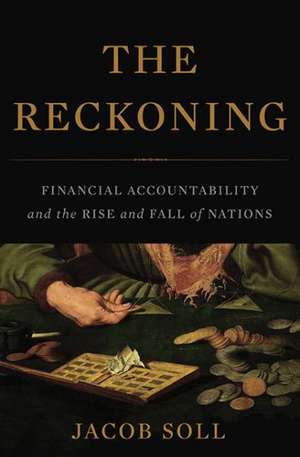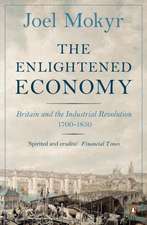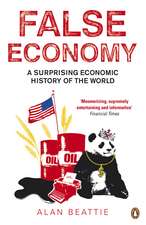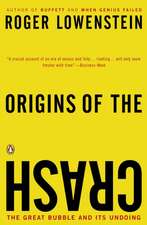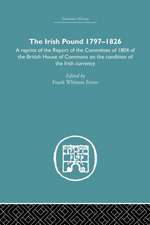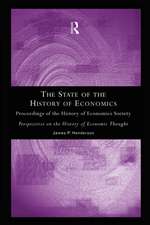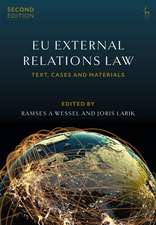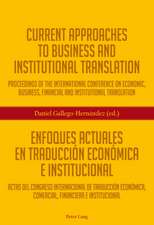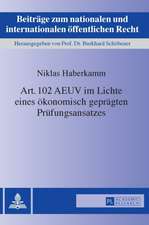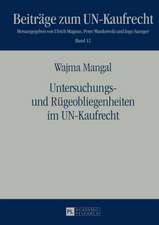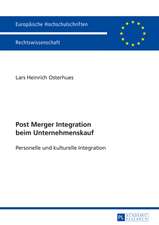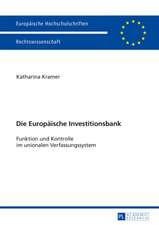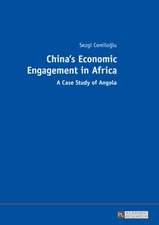The Reckoning: Financial Accountability and the Rise and Fall of Nations
Autor Jacob Sollen Limba Engleză Hardback – 28 apr 2014
Whether
building
a
road
or
fighting
a
war,
leaders
from
ancient
Mesopotamia
to
the
present
have
relied
on
financial
accounting
to
track
their
state's
assets
and
guide
its
policies.
Basic
accounting
tools
such
as
auditing
and
double-entry
bookkeeping
form
the
basis
of
modern
capitalism
and
the
nation-state.
Yet
our
appreciation
for
accounting
and
its
formative
role
throughout
history
remains
minimal
at
best-and
we
remain
ignorant
at
our
peril.
The
2008
financial
crisis
is
only
the
most
recent
example
of
how
poor
or
risky
practices
can
shake,
and
even
bring
down,
entire
societies.
InThe Reckoning, historian and MacArthur "Genius" Award-winner Jacob Soll presents a sweeping history of accounting, drawing on a wealth of examples from over a millennia of human history to reveal how accounting has shaped kingdoms, empires, and entire civilizations. The Medici family of 15th century Florence used the double-entry method to win the loyalty of their clients, but eventually began to misrepresent their accounts, ultimately contributing to the economic decline of the Florentine state itself. In the 17th and 18th centuries, European rulers shunned honest accounting, understanding that accurate bookkeeping would constrain their spending and throw their legitimacy into question. And in fact, when King Louis XVI's director of finances published the crown's accounts in 1781, his revelations provoked a public outcry that helped to fuel the French Revolution. When transparent accounting finally took hold in the 19th Century, the practice helped England establish a global empire. But both inept and willfully misused accounting persist, as the catastrophic Stock Market Crash of 1929 and the Great Recession of 2008 have made all too clear.
A masterwork of economic and political history, and a radically new perspective on the recent past,The Reckoningcompels us to see how accounting is an essential instrument of great institutions and nations-and one that, in our increasingly transparent and interconnected world, has never been more vital.
InThe Reckoning, historian and MacArthur "Genius" Award-winner Jacob Soll presents a sweeping history of accounting, drawing on a wealth of examples from over a millennia of human history to reveal how accounting has shaped kingdoms, empires, and entire civilizations. The Medici family of 15th century Florence used the double-entry method to win the loyalty of their clients, but eventually began to misrepresent their accounts, ultimately contributing to the economic decline of the Florentine state itself. In the 17th and 18th centuries, European rulers shunned honest accounting, understanding that accurate bookkeeping would constrain their spending and throw their legitimacy into question. And in fact, when King Louis XVI's director of finances published the crown's accounts in 1781, his revelations provoked a public outcry that helped to fuel the French Revolution. When transparent accounting finally took hold in the 19th Century, the practice helped England establish a global empire. But both inept and willfully misused accounting persist, as the catastrophic Stock Market Crash of 1929 and the Great Recession of 2008 have made all too clear.
A masterwork of economic and political history, and a radically new perspective on the recent past,The Reckoningcompels us to see how accounting is an essential instrument of great institutions and nations-and one that, in our increasingly transparent and interconnected world, has never been more vital.
| Toate formatele și edițiile | Preț | Express |
|---|---|---|
| Paperback (1) | 68.53 lei 22-33 zile | +23.82 lei 6-12 zile |
| Penguin Books – 29 apr 2015 | 68.53 lei 22-33 zile | +23.82 lei 6-12 zile |
| Hardback (1) | 233.37 lei 3-5 săpt. | |
| BASIC BOOKS – 28 apr 2014 | 233.37 lei 3-5 săpt. |
Preț: 233.37 lei
Nou
Puncte Express: 350
Preț estimativ în valută:
44.66€ • 47.75$ • 37.23£
44.66€ • 47.75$ • 37.23£
Carte disponibilă
Livrare economică 27 martie-10 aprilie
Preluare comenzi: 021 569.72.76
Specificații
ISBN-13: 9780465031528
ISBN-10: 0465031528
Pagini: 312
Dimensiuni: 156 x 235 x 26 mm
Greutate: 0.54 kg
Ediția:1
Editura: BASIC BOOKS
Colecția Basic Books
ISBN-10: 0465031528
Pagini: 312
Dimensiuni: 156 x 235 x 26 mm
Greutate: 0.54 kg
Ediția:1
Editura: BASIC BOOKS
Colecția Basic Books
Notă biografică
Jacob
Sollis
a
professor
of
history
and
accounting
at
the
University
of
Southern
California.
The
author
ofPublishing
The
PrinceandThe
Information
Master,
Soll
was
awarded
the
MacArthur
"Genius"
Grant
in
2011.
He
lives
in
Los
Angeles.
Recenzii
"The
Reckoningdemonstrates
how
financial
transparency
and
accounting--essential
for
capitalism
and
our
global
economy--are
linked
with
political
transparence
and
accountability."
—Pittsburgh
Tribune-Review"a dazzling book, rigorously researched and demonstrating an extraordinary scholarly range."—Literary Review(UK)
"Soll's book is chock-full of valuable snippets of information."—Global Finance
"Mr. Soll spices his story with big historical personalities.... [He] earns high marks for brevity...as well as for scholarship."—Wall Street Journal
"[A] brilliant, deceptively brief book.... Soll pulls off the miracle of making his history not a monolith but a mosaic."—Los Angeles Review of Books
"A history of accounting may not sound like an exciting read, but Soll spares us the details of double-entry bookkeeping and instead tells a series of engaging stories of well-known historical events.... I'd strongly recommend this book for the fresh insight it brings to familiar historical events, and for its author's ability to find the compelling human stories in the dry world of income statements and balance sheets."
—Andrew Blackman
"Who
would
imagine
that
a
history
of
accounting
and
double-entry
bookkeeping
could
be
so
engaging?
Yet
in
this
concise,
sharply
argued
book,
Jacob
Soll
deftly
examines
and
explains
the
remarkable
impact
that
the
practice
of
accounting
has
had
on
the
rise--and
sometimes
the
fall--of
nation
states."
—Jack
Rakove,
Pulitzer
Prize-winning
author
ofOriginal
Meanings:
Politics
and
Ideas
in
the
Making
of
the
Constitution"Who knew accounting was so interesting? Jacob Soll does, and in this masterful history of the men and women who have kept, and sometimes cooked, our books, he will convince you, too.The Reckoningdoes what the best history should: it piques our interest in accounts of the past so that we may better balance our own."—Darrin M. McMahon, author ofDivine Fury: A History of Genius
"Every student, teacher and practitioner of business or government should know this history of accounting, from its grounding in theology and philosophy to its central role in the rise of modern commerce, statecraft, and indeed, civilization itself."—Robert Bloomfield, Nicholas H. Noyes Professor of Management and Accounting, Cornell University
"Many have long known, or at least suspected, that CPAs rule the world. The proof is here.The Reckoningis a tale of power, empire, art and culture--and of their half-hidden puppetmasters from the Roman Empire to the Gilded Age."—James K. Galbraith, author ofThe End of Normal
"[F]ascinating.... [A] readable romp through a history ofaccounting."—Economia(UK)
Descriere
Descriere de la o altă ediție sau format:
In The Reckoning, award-winning historian Jacob Soll shows how the use and misuse of financial bookkeeping has determined the fates of entire societies. Time and again, Soll reveals, good and honest accounting has been a tool to build successful companies, states and empires. Yet when it is neglected or falls into the wrong hands, accounting has contributed to cycles of destruction that continue to this day.
Combining rigorous scholarship and fresh storytelling, The Reckoning traces the surprisingly powerful influence of accounting on financial and political stability, from the powerful Medici bank in the 14th century Italy to the 2008 financial crisis.
